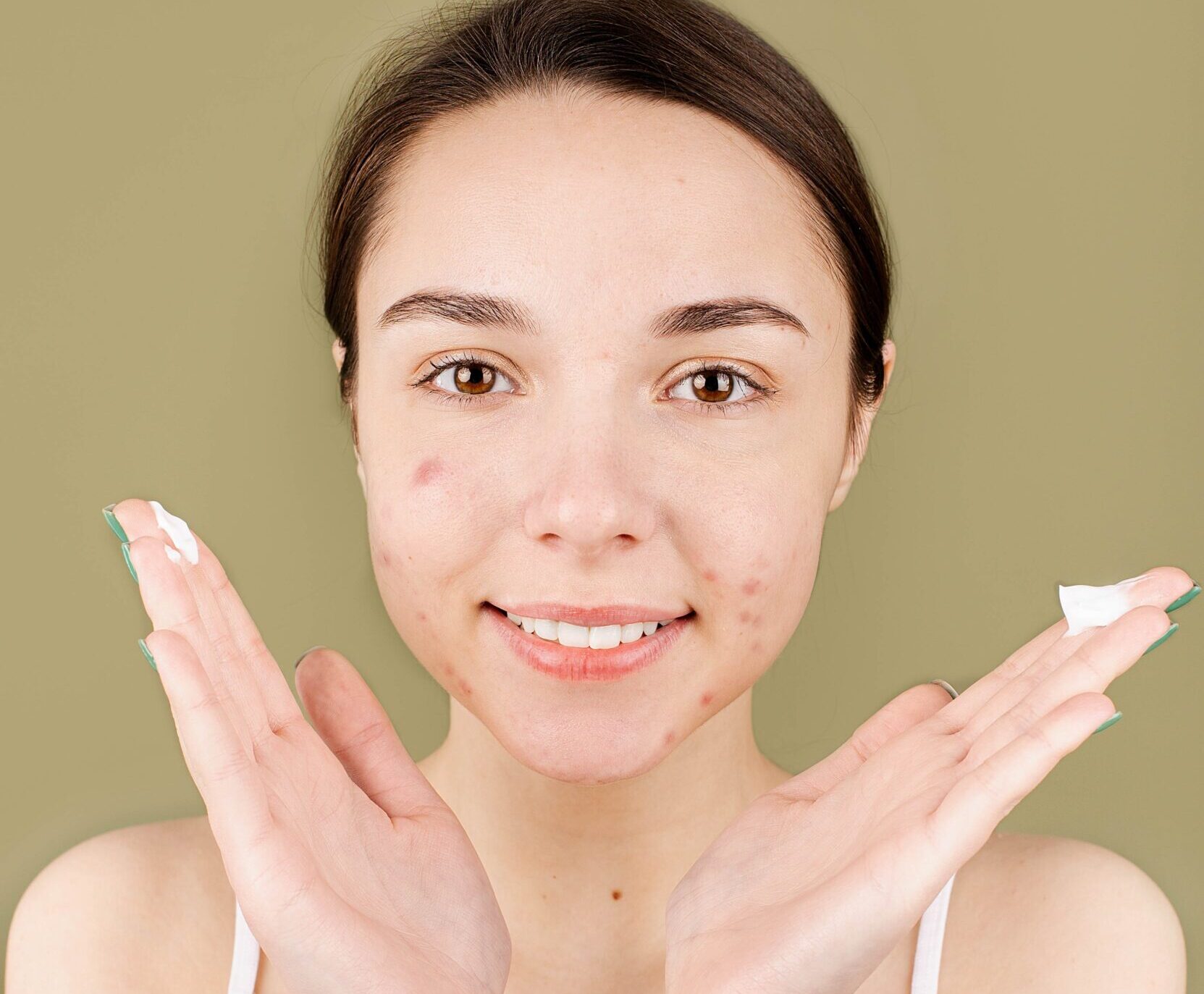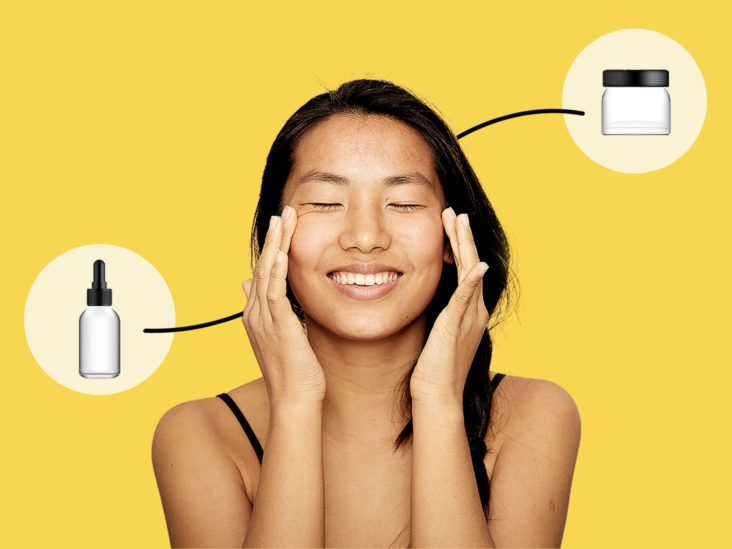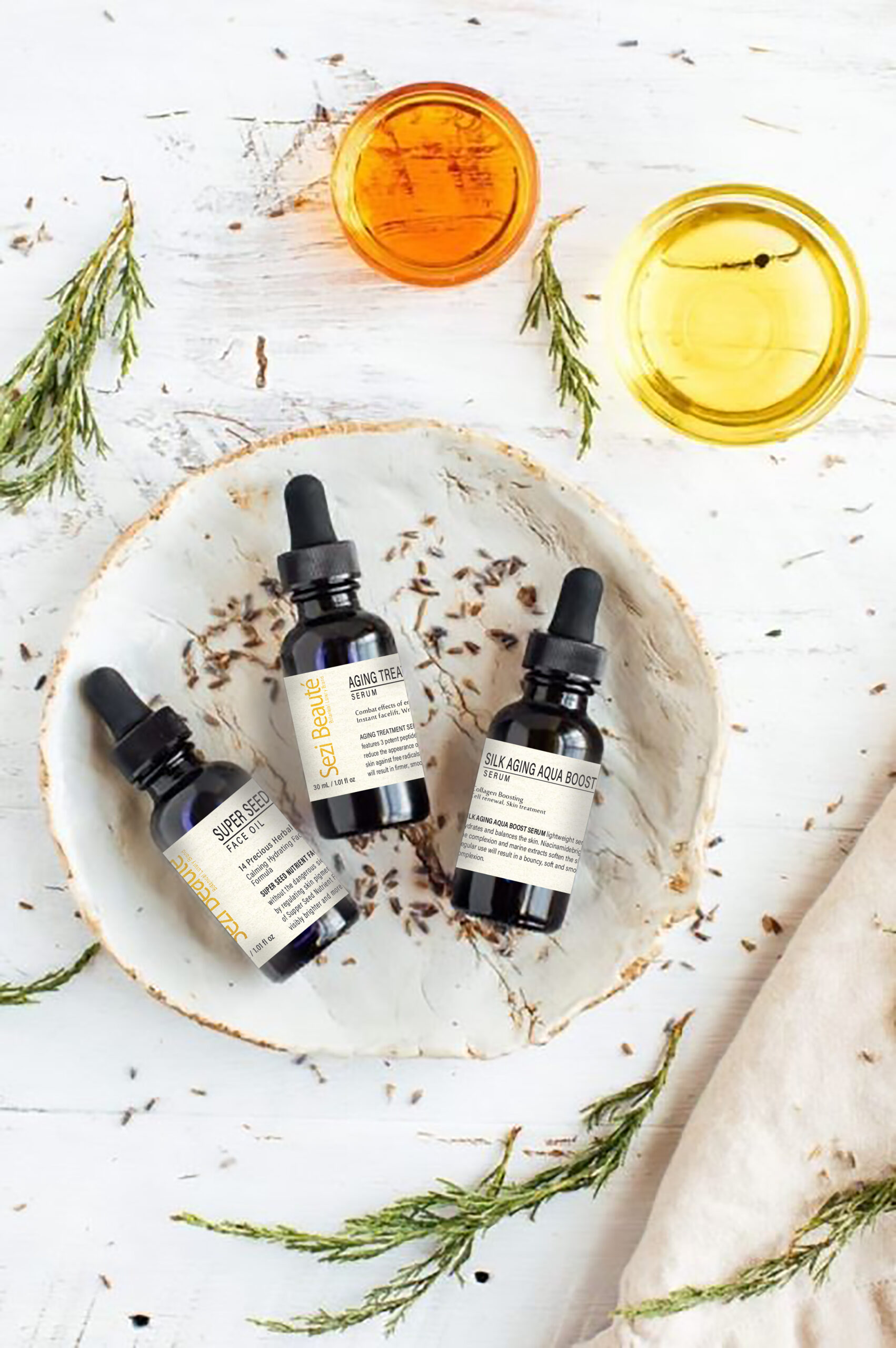
When it comes to skincare, it can be super difficult to sort fact from fiction. There’s A LOT of misinformation getting around.
And while some myths have been passed down from generations, others are mere marketing mumbo jumbo that have somehow ended up being taken as gospel.
That’s why we asked skincare expert to help kick six of the most common skincare myths to the kerb.
Over to the pro!
Skincare Myth #1: Acids can thin the skin.
One of the most common skincare beliefs out there is that acids like glycolic acid and lactic acid can thin the skin. However, this isn’t entirely true.
Acids are designed to break down the bonds that hold dead surface skin cells together so that they can easily shed.
This causes thinning of the outermost layer of the skin, but not in a bad way – only dead surface skin cells are affected.
professional in-clinic peels do anything BUT thin the skin – they actually have the opposite effect – restoring essential components of the skin that are damaged as we age.
Professional strength peels, on the other hand, have been shown to increase collagen production and the density of the dermis, therefore actually thickening the skin.
Thicker skin that functions more youthfully? That sounds like a pretty good thing to us!
Skincare Myth #2: It’s better to use an entire routine from one brand.
While we’re made to believe that you must use products from the same brand to see the best results, it’s not actually true.
There are benefits to using products from one brand, but it is not essential,
What really matters is the actual formulas, consistency and whether or not they suit your skin type and concerns.
If you struggle with skin sensitivity it is best to use products from one brand at a time until you ascertain what is working for you.
By sticking to one brand you can reduce the number of different substances that your skin will be in contact with and therefore reduce potential irritation.
If you do have tried and tested products that are part of your regular regime and you are interested in trying a new brand, by all means do so. Just go slow and introduce one product at a time.
So, there’s no problems mixing products from different brands – as long as you take your time, and the products are right for your skin.
Skincare Myth #3: The higher the percentage of active ingredients in a product the better.
This Skincare Myth is False. You don’t need a big percentage to feel the effects of a product. Some ingredients can create change in the skin with a lower concentration. Not all active ingredients are recommended to be used at a high percentage,
Active ingredients have a percentage range where they are most effective at achieving a desired result.
For some ingredients, the percentage range is much lower than others, and anything beyond that range can either be ineffective and overly inflates the cost of a finished product – or worse, it can cause irritation to the skin.
For example, niacinamide beyond five percent can be irritating to skin, whereas another fantastic densifying ingredient called adipofill’in is recommended to be used at a concentration of 0.5 percent up to two percent – which if marketed as a percentage, may appear low.
There’s no denying that we’ve entered a new era of skincare, where percentage is used as a marketing tool to lure consumers into thinking a particular product is better or more effective than those with a lower concentration.
I have seen ascorbyl tetraisopalmitate marketed at 20 percent, when its recommended range is actually much lower.
However, when I looked closer at the product label, it claimed ascorbyl tetraisopalmitate ‘solution’ 20 percent, which is the actual physical percentage of the supplier solution used within the product, rather than the percentage of the active ingredient found within the product.
So sneaky!
Disclosing ingredient percentages can be very misleading,
Skincare Myth #4: You can mix products together before using them.
Woah! Be careful with this – because you can end up doing a real number on your skin.
Some ingredients don’t play well together…
I don’t recommend mixing products. Cosmetics are complex and are made up of many ingredients,
Mixing them can lead both to safety issues as well as technical and stability issues. Mixing should be avoided and this is even more important for products with high AHA and BHA concentrations.
For more info about Retinol.
Skincare Myth #5: Fragrances in skincare products aren’t good for skin.
If you’re a bit of a skincare aficionado, chances are you will have heard or read that fragrances in skincare is bad.
Over the past few years, there’s been a war against fragrances in skincare, with many ‘skintellectuals’ on social media encouraging people to ditch all traces of fragrance in their skincare.
However, according to experts, it’s not that simple.
Fragrances have a bad reputation. Products are marketed as ‘fragrance-free’ because of the negative perception surrounding them,
So, why are people so scared of fragrances in skincare?
Fragrances are considered the most common irritant in cosmetic products and can be allergenic, regardless of whether they are naturally or synthetically derived,
They are mixtures or various scent substances and anyone of us can react to the molecules composing the fragrance.
In saying that, there are many scent substances that are not deemed ‘fragrances’ and do not need to be labelled as fragrances.
Therefore, a lot of seemingly ‘fragrance-free’ skincare products actually have a fragrance added to mask the smell of the ingredients that don’t smell very good.
Ah! How confusing.
So… who should actually be concerned about fragrances in skincare?
If you’re not allergic to perfume and use it regularly, or if you use foundation (which in most cases contain fragrances), then you’re most likely not allergic to fragrances and don’t need to worry about them.
However, if you have sensitive skin, the best way to be safe when choosing skincare is to look for products formulated with allergen-free fragrances.
These formulations are least likely to trigger reactions. Allergen-free fragrances are fragrances that don’t contain any of the 26 substances recognised as allergens by the current regulations.
Skincare Myth #6: Prescription retinol is better than over the counter skincare with retinol.
Yes and no. For some skin types yes, if your skin can tolerate prescription retinol the benefits are fantastic,
However, if you have sensitive skin I would recommend the gentlest form of vitamin A retinyl palmitate.
it can be used daily and has great cumulative benefits without causing irritation.
Are you guilty of believing any of the above? Share your views with us at info@sezihealth.com.au
you may also intrested in this ARTICLE too.








6 thoughts on “6 common skincare myths cracked by an expert.”
it takes long time to change the affects of some myths in people brains.
thanks for sharing this. very useful
i always think of Fragrances in skincare products aren’t good for skin. but it seems i am not right😀
this is a good article, i learn a lot.
oh my good i have no idea of these myths, thanks for sharing.
I love this, keep up the good job.